
MHS Nurse Advice Line proves to be invaluable during COVID-19 pandemic
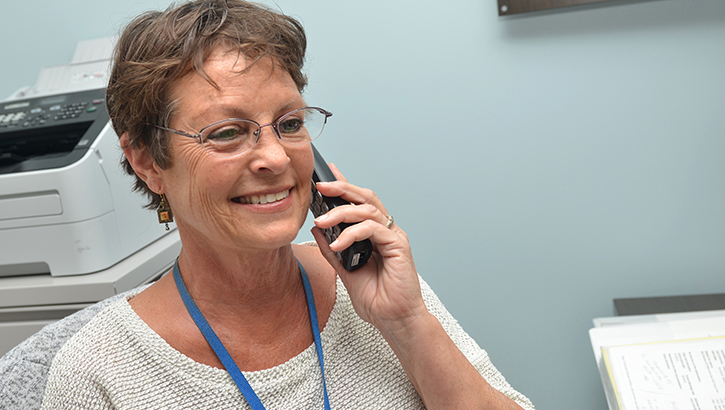
The NAL offers eligible beneficiaries 24/7 telephone access to a registered nurse for triage services, self-care advice, and general health inquiries. It also provides information to beneficiaries about COVID-19 symptoms. (Photo by Cpl. Sarah Cherry)
When news broke of the novel coronavirus entering U.S. shores, thousands of military beneficiaries dialed the Military Health System’s Nurse Advice Line, or NAL, with questions and concerns. Call volume to the advice line increased fourfold in a short period, with the highest day seeing more than 10,000 calls. Wait time to speak to a nurse exceeded an hour. With effort, call volume has lowered by 50% and nurse wait times were decreased from sometimes over 100 minutes down to three to four seconds by March 30. While call volume to the hotline remains higher than normal, the NAL is still able to answer patients’ questions and provide advice on when and where to seek care.
The NAL offers eligible beneficiaries telephone access to a registered nurse for triage services, self-care advice and general health inquiries. For the COVID-19 response, the NAL has adjusted its triage protocols in real time according to guidelines from the Centers for Disease Control and Prevention. The NAL is now able to book virtual visits made available by military treatment facilities or MTFs. This practice allows the team to provide care to the patient while minimizing risk of exposure. Patients can be brought in on a case-by-case basis, as clinically indicated.
Regina Julian, chief of DHA’s Healthcare Optimization Division, said that providing a reliable source of information to patients is the priority for health care organizations amid a health crisis like COVID-19. The HOD released a comprehensive response plan to address COVID-19, focused on continuing education to the public about the disease. Another tenet of the plan was for MTFs to increase access to both the NAL and patients through their appointment lines, secure messaging and availability of virtual-phone visits.
“We have three goals with this plan,” she continued. “We want to alleviate patient concerns, provide multiple sources of evidence-based advice for our patients and protect our patients and medical staff by offering telephone and in some cases video visits if needed.”
MTFs are using this guidance to help their beneficiaries learn more about COVID-19. If patients need in-person visits, they will be instructed on where to go by the nurse or provider to minimize unnecessary exposure for patients and staff.
Julian emphasized the fast responses of MTFs to the outbreak. “I am really impressed at how the military hospitals and clinics are stepping up to address the pandemic, leveraging the NAL and all other options like their own registered nurses working in primary care clinics, local hotlines, and [using] secure messaging,” she said.
Along with virtual visits, secure messaging is a way for providers to educate and contact patients directly with resources about the disease. Messages created by health care providers and pushed to beneficiaries have already increased over 10 times compared to the same period last year.
Secure messaging is also a convenient and easy way for patients to reach out to their health care teams privately via email. Beneficiaries receiving care at an MTF can use secure messaging to ask questions and get non-emergency health advice directly from their health care team. Patients can receive education information about a variety of topics like coronavirus.
Patients can also use secure messaging to send pictures, files and forms to their provider. Information provided through secure messaging gets added to the patient’s electronic health record. Patients who have difficulty in registering for secure messaging or who do not receive an answer within 24 hours should contact their hospital or clinic patient advocate for assistance. Contact information for patient advocates can be found on each MTF’s webpage.
Many military hospitals and clinics have their own hotline numbers that patients can call for direct contact with providers. MTFs are increasing the supply of virtual appointments available with providers to ensure that patients have access to care. These appointments may be booked by calling the central appointment line or by visiting the TRICARE Online and MHS GENESIS patient portals.
While the MHS has many options for its patients, the NAL is still a great resource with a very short wait time. The NAL is available 24 hours a day, seven days a week and is toll-free in the United States and countries overseas where an MTF is located. Beneficiaries can contact the NAL at 1-800-TRICARE (874-2273) and select Option 1. Almost 40% of all calls are handled successfully by the registered nurses using self-care advice. Call volume to the NAL is the highest between 8 and 10 a.m., so calling throughout the day will reduce wait times.
“The MHS recognizes that sometimes, patients are nervous about the current pandemic or any other health care issue,” Julian stated. “Because of this, the NAL nurses are available to answer your general health questions, even if you don’t feel ill. If you do need care, the nurses are trained to identify the correct source of care for you, which may be an emergency room, an urgent care clinic, or an appointment in a MTF.”
No matter what advice or care is needed, the MHS is committed to meeting patients' needs. As an alternative to using the NAL, both Health.mil and TRICARE.mil have updated their websites with the latest information on COVID-19. Additional information can be found on the CDC coronavirus website.
'I Am Navy Medicine, helping stop the spread of COVID-19'
Article
5/7/2020
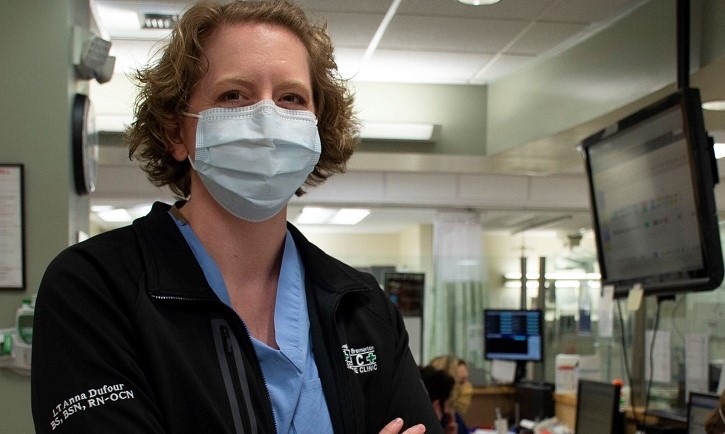
NMRTC Bremerton’s Urgent Care Clinic (UCC) is a microcosm example of nurses – and teamwork - in action.
DoD to honor nurses during National Nurses Week 2020
Article
5/6/2020
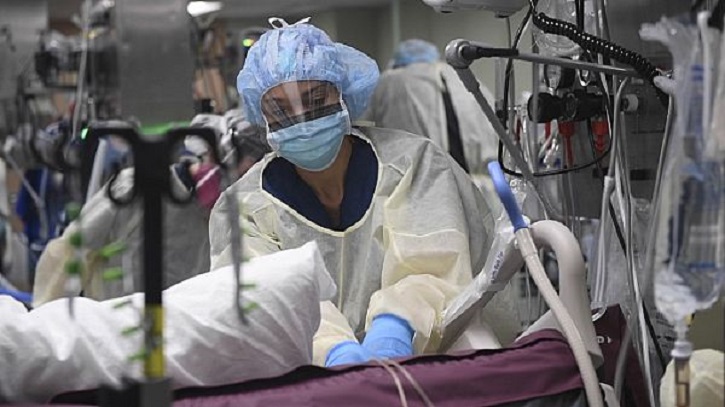
National Nurses Week begins on National Nurses Day, May 6, and culminates May 12.
DHA collaborates to further sequence the SARS-CoV-2 Code
Article
5/6/2020
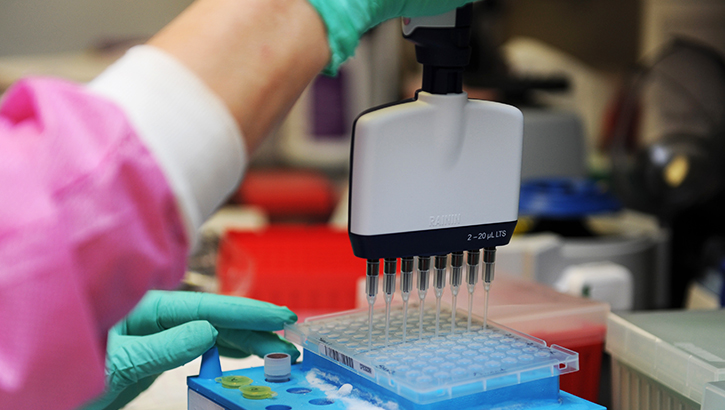
Scientists race to understand COVID-19 building blocks and find a vaccine.
Naval Health Clinic Oak Harbor Honors Nurses during National Nurses Week
Article
5/6/2020
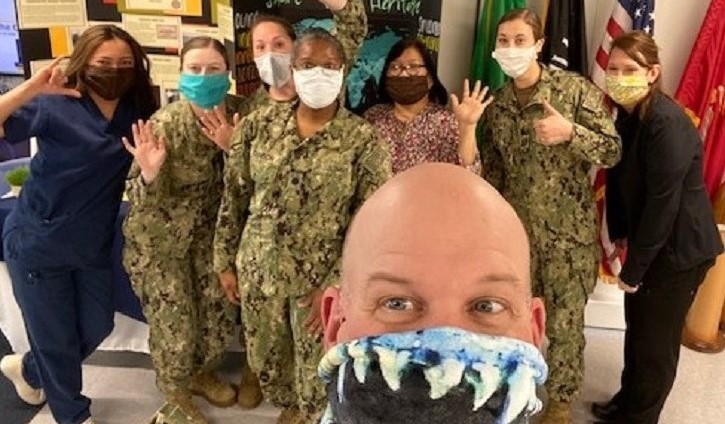
The MHS theme of 2020 National Nurses Week is “Integrating for Excellence.”
Be Cyber Vigilant and Avoid COVID-19 Scammers
Article
5/5/2020
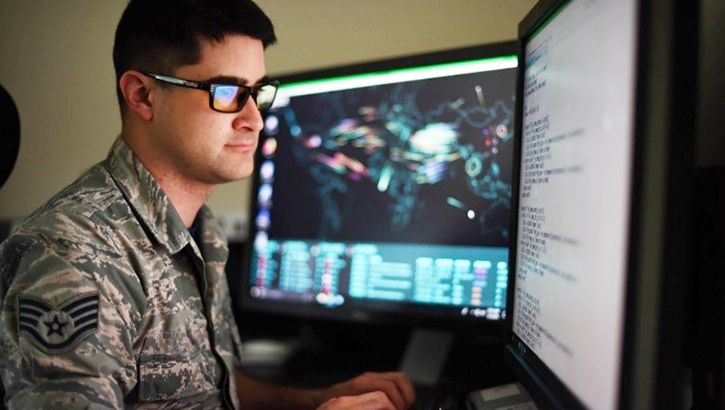
Take these steps to protect your personal information
MHS expedites COVID-19 and flu test results
Article
5/4/2020
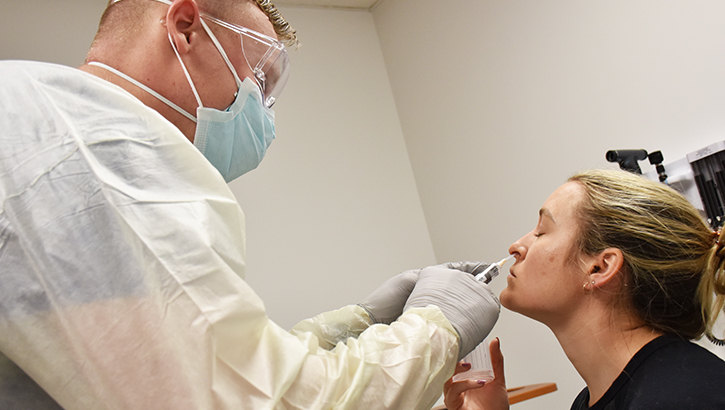
Find out how to access results and stay safe
Mobility Airmen conduct historic first aeromedical evacuation mission using Transport Isolation System
Article
5/4/2020
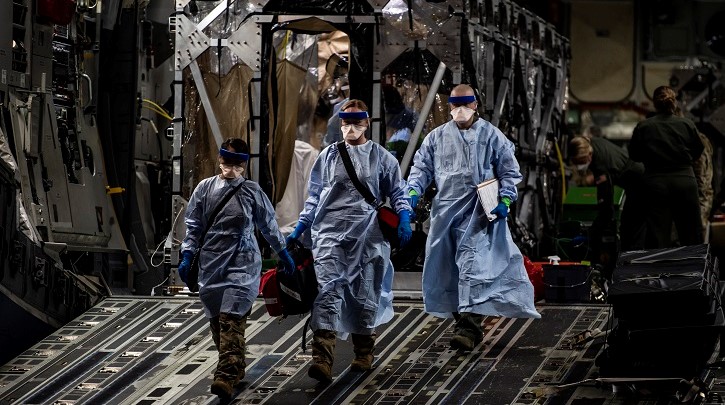
The TIS is an infectious disease containment unit designed to minimize risk to aircrew, medical attendants, and the airframe.
CDC maintains childhood immunization guidelines during COVID-19
Article
5/1/2020
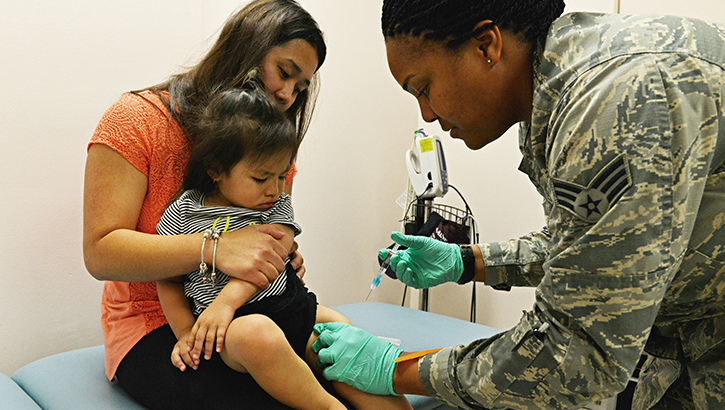
What you need to know about getting your child vaccinated
Army veterinarians post FAQ for pet owners to Army Public Health Center COVID-19 website
Article
4/30/2020

Studies are underway to investigate human to animal transmission in multiple animal species.
COVID-19: Know symptoms and next steps to help ensure full recovery
Article
4/30/2020
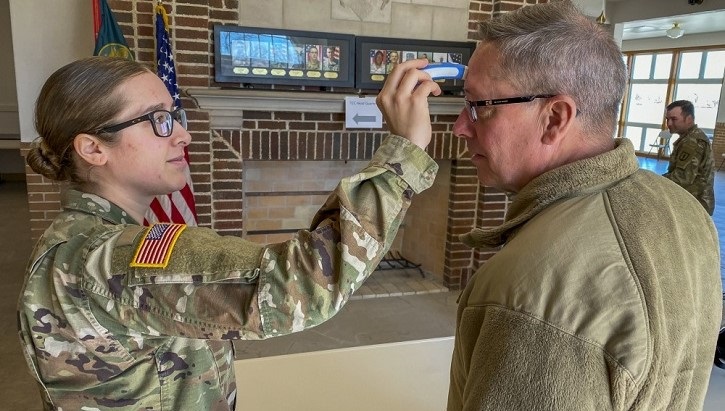
Symptoms of COVID-19
BAMCheroes appreciation
Video
4/29/2020
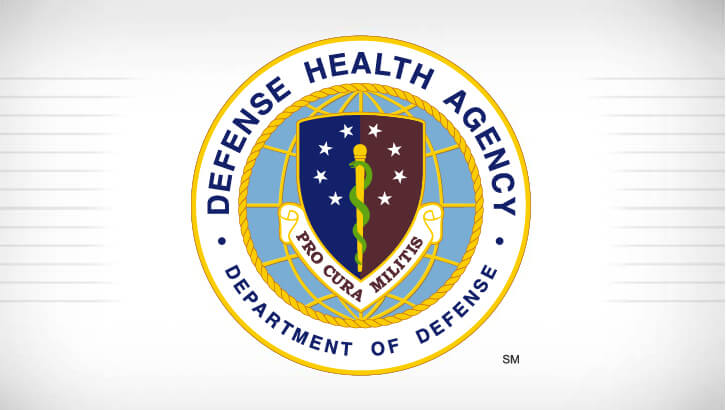
Our community has been a great source of support! Check out some of the positive feedback Brooke Army Medical Center has received for our incredible healthcare professionals.
Defending the Homeland: WRNMMC on front line of COVID-19 war
Article
4/29/2020
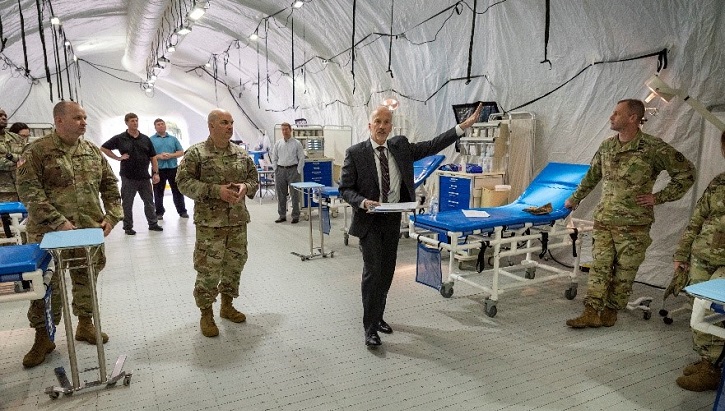
For patient and staff safety, WRNMMC started restricted access control points March 12.
Amid COVID-19, seasonal influenza still a threat to force readiness
Article
4/29/2020
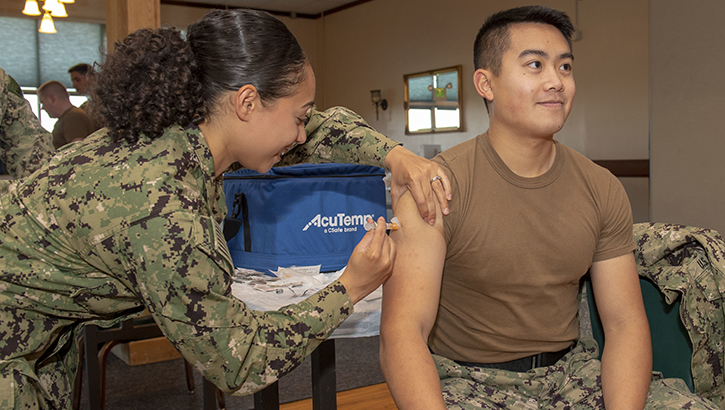
New Southern Hemisphere flu vaccine available May 2020
MHS pharmacies adapt services amid COVID-19
Article
4/28/2020
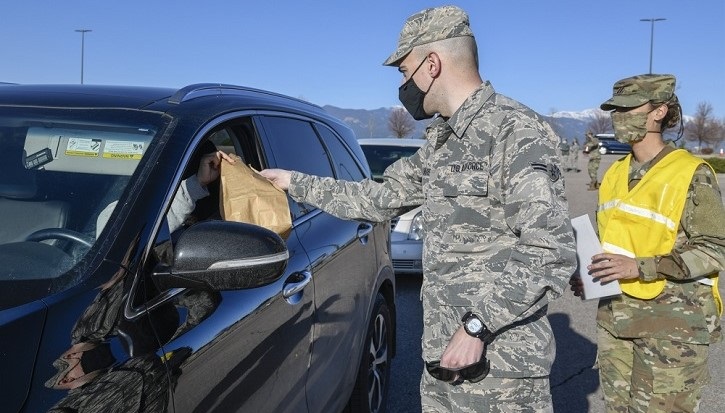
Curbside, drive-thru, parking lobbies among solutions for prescription pickup
General’s visit punctuates engineering efforts converting arena to alternate care site
Article
4/27/2020
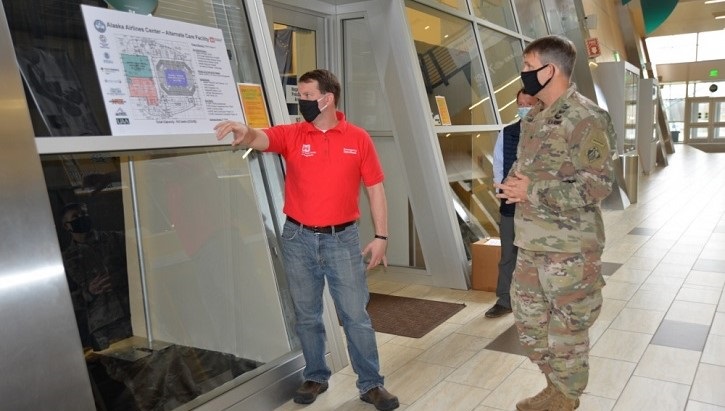
The project cost $1.26 million and was completed in one week.





















.png)












No hay comentarios:
Publicar un comentario